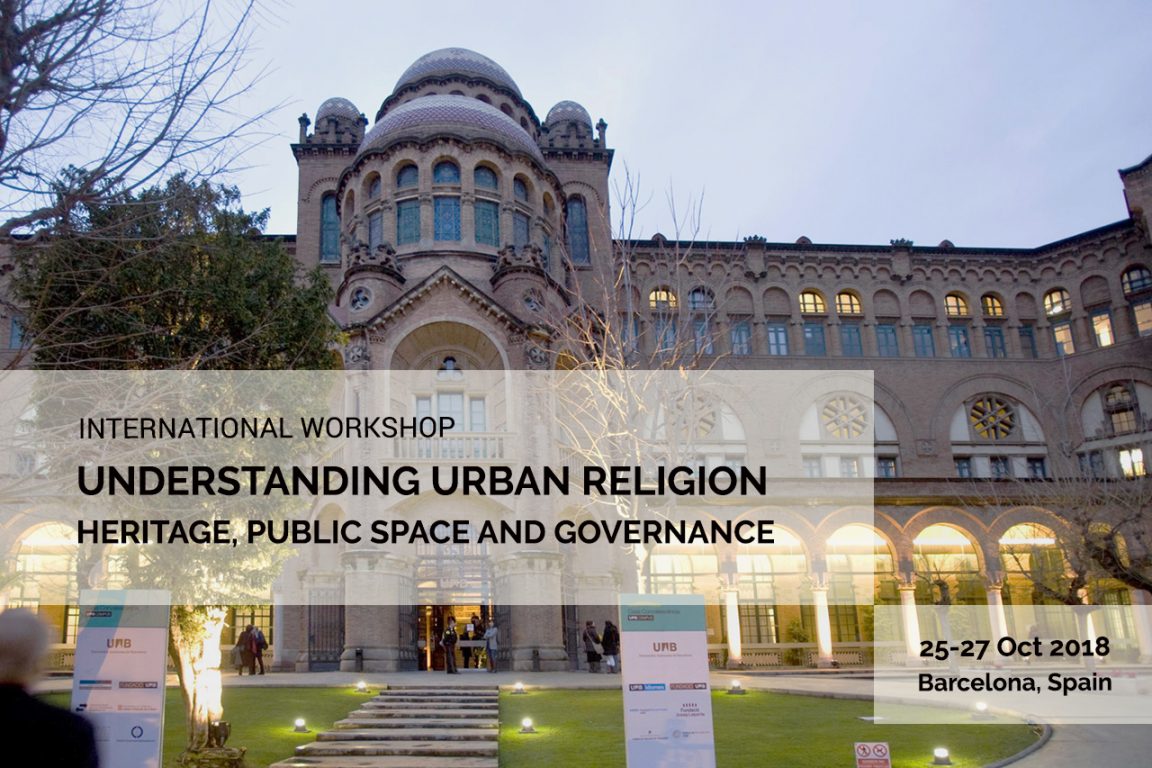Understanding Urban Religion: Heritage, Public Space and Governance

About The Event
Date: October 25-27, 2018
Venue: Barcelona, Spain
While sociological research on religion in urban contexts has proliferated in recent years, the city has less frequently been taken explicitly as a relevant dimension in the study of religion.
On the one hand, religious communities have begun to adapt to trends of urban change such as sub-urbanization and de-industrialization by establishing places of worship in shopping malls, former industrial warehouses, newly established industrial estates and other commercial zones. On the other hand, and especially in Europe, a rapidly increasing number of traditional church buildings are closed and repurposed as a consequence of dropping membership and resulting financial pressures.
In recent years, there has also been a proliferation of multi-faith and inter-faith places. These are either construed as unified places that remain architecturally neutral and open to believers and practitioners of all persuasions, or contain symbolic and architectural elements of different religious communities (often the so-called Abrahamic faiths, Christianity, Islam and Judaism).
The aim of this workshop is to explore the conditions, forms and consequences of the ways urban religion is revitalized, spatialized and governed in contemporary cities. The general topic of the workshop is organized around three sub-themes: heritage, religious expressions in public space, and governance.
Workshop will address the following themes:
1. Religious heritage. The aim of this thematic focus is to discuss cultural, political and power dynamics associated with religious heritage, and explore its role in contemporary cities.
2. Urban religious expressions. This strand explores public religious expressions such as festivals, parades, public prayers and meditations and aims to understand processes of the eventization of urban religion as well as the challenges these presences pose to cities and their dwellers.
3. Governance. Contributions in this third thematic section will look at different articulations of state-religion regimes and political secularism at the urban level.
Source: ISA Research Committee 22


We're always eager to hear from you.
If you’d like to learn more about us or have a general comments and suggestions about the site, email us at